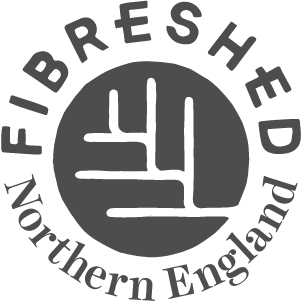I’m thrilled to announce North West England Fibreshed’s collaboration with fashion designer Patrick Grant and the British Textile Biennial.
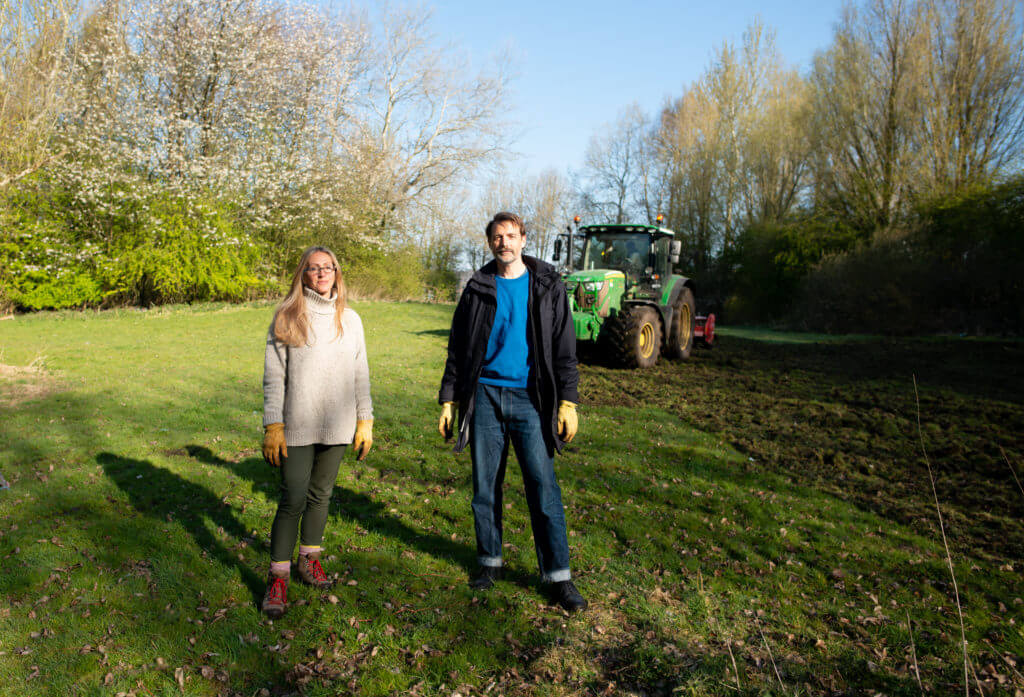
Our idea seems simple: grow flax for linen and woad for indigo on disused urban land in Blackburn, working with the local community to make a pair of jeans during this October’s event. Then, create the manufacturing infrastructure enabling our prototype to be upscaled into a full production of ‘Homegrown Homespun’ jeans to be launched by social enterprise, Community Clothing during the next Biennial in 2023 who’s theme is sustainability.
However, there’s much more to this story! So, whilst I’m only introducing the outline today, over the coming weeks I’ll be documenting the process and sharing more about the research, development, potential benefits and challenges that lie ahead.
Origin and Evolution
I’m a natural dye artisan and teacher trying my best to work ethically and sustainably, yet restricted by the globalised system I function within. The more I learnt about my craft within the context of intersectional environmentalism, the more I realised that due to lengthy international supply chains, it was pretty much impossible to guarantee the creative work I did wasn’t contributing to human or environmental exploitation and this made me deeply uncomfortable. To do something about this, I decided to volunteer as an affiliate of the international organisation Fibershed who are devising solutions by creating ‘soil to soil’, regionalised textile systems that use ‘local fibre, local dye and local labour’.
I founded North West England Fibreshed in the heartland of British textiles last March, with the intention of incentivising the reintroduction of textile crops so I could eventually mend my jeans with British linen, dyed using our native indigo plant, Woad. Easy! Until I discovered there are no linen spinning facilities in the U.K. anymore, therefore no arable textile crops, since our entire industry was off-shored over 60 years ago!
So began a fascinating learning process; taking on an allotment, growing more fibre and dye, extracting my own indigo pigment, discovering the ancient heritage of linen growing in the U.K. and learning linen processing and hand spinning, but I’ll write more about this over the coming weeks.
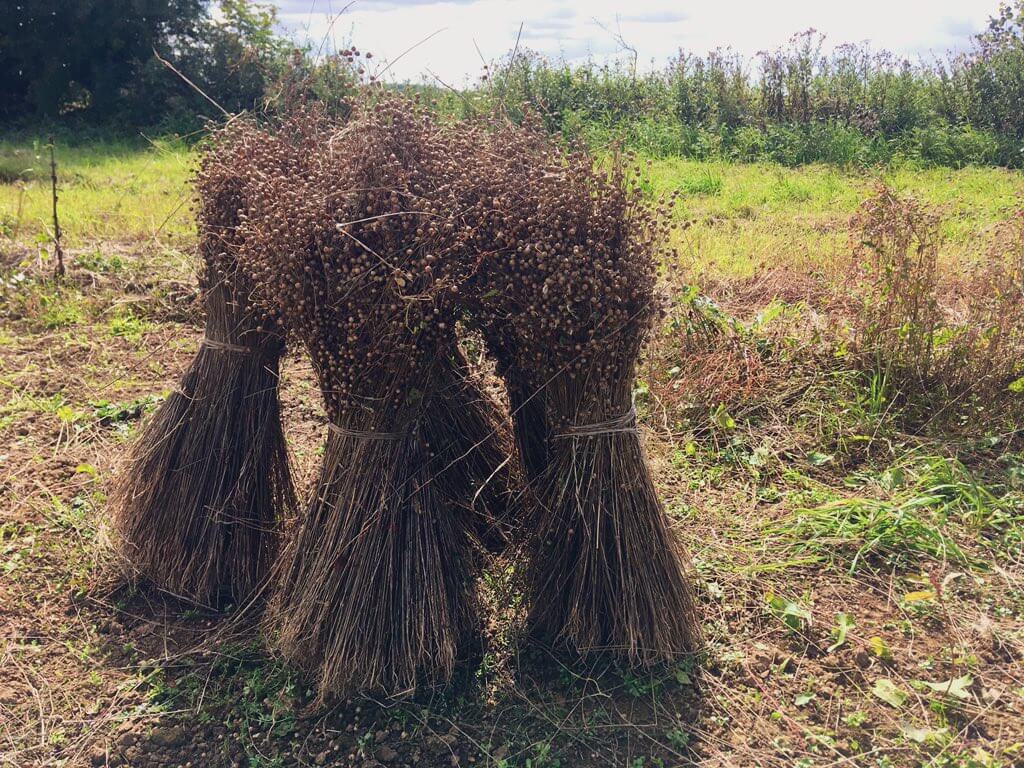
While taking my own textile practice back to the soil, I also began training in regenerative textiles with Fibershed and sharing research with Patrick Grant, director of multiple clothing enterprises and judge on the BBC’s ‘The Great British Sewing Bee’. Again, the collaborators on this project warrant a separate post but suffice it to say, Patrick has been a champion for regional, sustainable fashion for many years. He’s at the forefront of ‘fashion for good’ so was interested in the potential benefits of regeneratively grown textile crops, not just socially and economically but ecologically too.
The Fibershed organisation advocate for short, transparent supply chains by directly linking farms to fashion and through their extensive research, have highlighted the fact that when grown within carbon farming principals, textiles could become ‘Climate Beneficial™’. Their standards are fast becoming the new benchmark for a more ethical fashion industry because garments produced using these rigorous principals give back more than they take from the environment, so helping reverse the climate crisis by reducing transportation costs, while eliminating human exploitation and replenishing soil health and biodiversity.
Their revolutionary idea of reshoring and decentralising the industry brings hope to the destructive fast fashion system that currently relies on the exploitation of (predominantly) women in the global south, as well offering alternatives to extracting polluting fossil fuel derived synthetic fibres and dyes.
The challenge was how to communicate all this and more via a project? Last August, we devised a plan to grow our own indigo linen jeans, and began to gather a dream-team of collaborators including Laurie Peake and Jenny Rutter of Super Slow Way who host the British Textile Biennial, of which Patrick is a patron. Following months of fantastic zoom meetings, yesterday we had our groundbreaking moment as our plot of land was ploughed ready for planting on our launch day this Friday 23rd April.
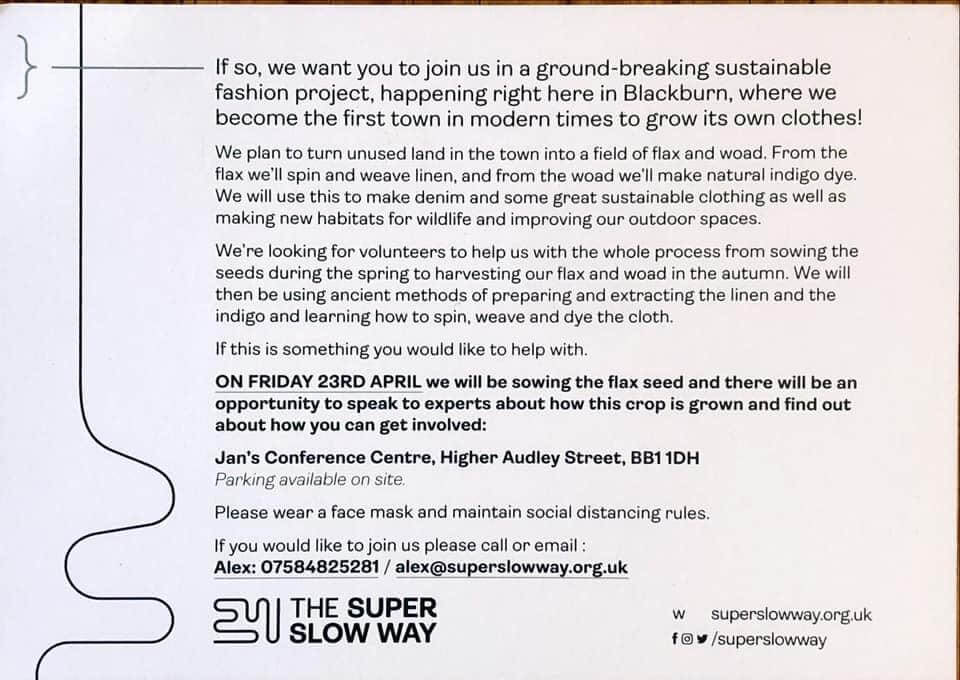
The Homegrown Homespun Project
And so it begins! The soil is prepared and has been tested by soil scientists from RegenAgri – an organisation aiming to ‘secure the health of the land and the wealth of those who live on it’. They, along with experts from Cranfield and Lancaster Universities, will be advising us on how to implement carbon farming techniques that sequester carbon from the atmosphere, back into the soil. I’d recommend watching the film ‘Kiss the Ground’ for more information on how this seemingly simple action could quickly remedy the climate crisis.
We’ve also begun improving this disused council land beside the famous Leeds-Liverpool canal by litter picking and pruning from 8am – 4pm yesterday. This is an area of social deprivation, in part caused by the decimation of the textile industry, so it’s especially fitting to be starting this project here. The sun shone and lots of people from the nearby community came by to say hello and offer support, for which we were very thankful! The site already looks better!
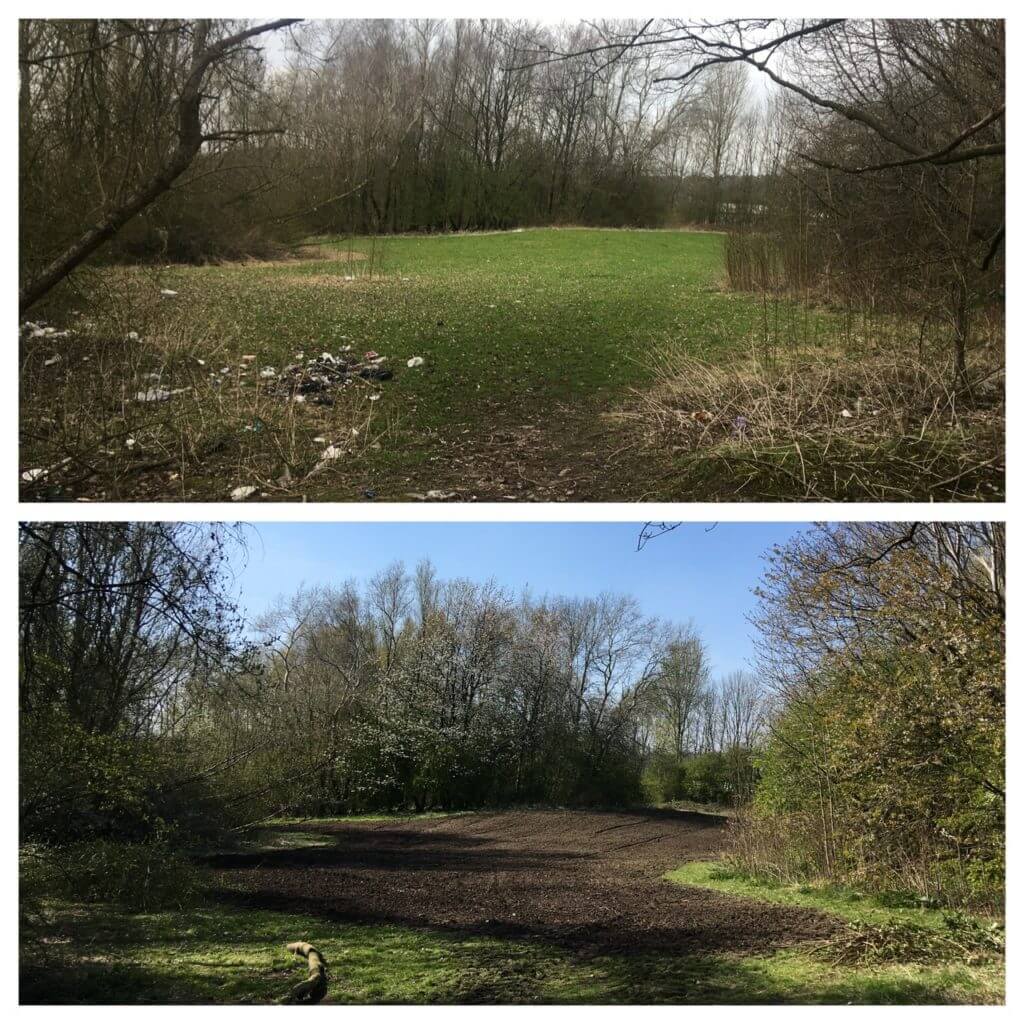
This Friday we’ll plant flax and woad seeds with the help of Simon and Ann Cooper from Flaxland, then in 100 days, we’ll begin harvesting before sharing the making process, which will involve some wonderful old terminology; retting, breaking, scutching, hackling, then spinning, dyeing, weaving and sewing during October’s month long event.
It’s a special honour for me to be hand dyeing this historic garment and I’m looking forward to sharing the magic of indigo extraction and vat dyeing with a larger audience. I’ve already begun sampling using homegrown linen and woad. The samples below were kindly hand spun by Carole Bowman who was involved in the 1220-2020 flax growing project at Heron Corn Mill last year.
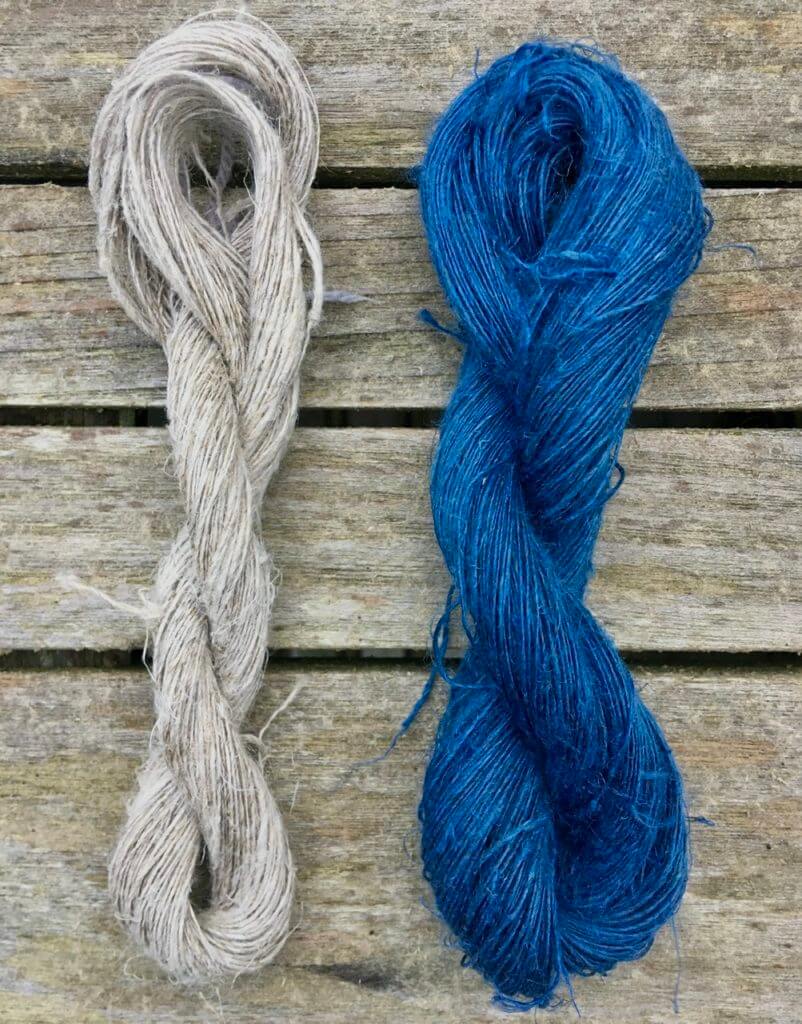
We hope to then display our prototype pair of indigo linen jeans and raise awareness of the need to reshore and regenerate our previously world-renowned textile industry – only this time on more equitable terms using renewable energy.
At a time when humanity is facing the devastating effects of climate change and loss of biodiversity, regenerative fashion initiatives like this can offer much needed hope. Everyone who wears clothing must now choose whether it comes from imported, non-renewable, fossilised carbon e.g. the ubiquitous polyester – or locally grown, renewable carbon, from plants like flax. One option pollutes throughout the entirety of its lifespan, the other has the potential to reverse climate change.
Fashion is an investment in the system that produced it, but so often our purchases support poor quality, exploitation and pollution, all cleverly concealed by an expensive advertising campaign. The team holding this healthier vision for the future of fashion recognise that changing the old paradigm may take time, experimentation, trial and no doubt error, but they also know that nothing will feel better next to the skin than clothing that has regenerated a local ecology and economy.
Join us!
If you’re local to the area and would like to volunteer as either a litter picker or custodian of the crop this summer, please join us this Friday at either 10am or 2pm (details in flyer above) when we’ll be recruiting a team – contact Alex our project manager alex@superslowway.org for details.
Follow our Story using the hashtag #HomegrownHomespun
